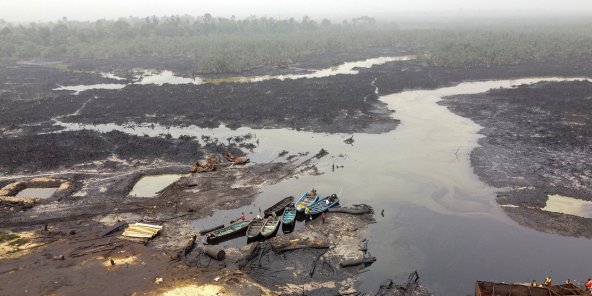The World Water Forum, which has just concluded in Dakar, highlighted the serious climate disruptions already affecting Africa. But it also showcased solutions, such as the NB-ITTAS initiative led by countries in the Niger Basin and their neighbors.
The second part of the sixth report by the Intergovernmental Panel on Climate Change (IPCC), released on February 28th, emphasizes the rapid reality of ongoing climate disruptions, the impacts of which will have lasting effects in Africa in the coming years. In the Niger Basin, the issue of water represents a central challenge that urgently requires a coordinated, intelligent, and effective approach, involving multilateral and regional partners as well as local stakeholders.
In this decisive context, the 9th edition of the World Water Forum (WWF) is taking place in Dakar from March 21st to 26th. Organized for the first time south of the Sahara, this gathering of institutional and private actors offers an opportunity to draw global attention to the water situation in West Africa and the Sahel. It also provides an opportunity to showcase successful initiatives and models.
One such project is the NB-ITTAS initiative, which aims to improve the conjunctive management of groundwater and surface water in the Iullemeden-Taoudeni/Tanezrouft Aquifer System (ITTAS) and the Niger Basin. Financed by the Global Environment Facility, it covers 11 African countries: the nine countries of the Niger Basin, as well as Algeria and Mauritania. Led by the United Nations through UNDP and the United Nations Environment Programme (UNEP), and supported by the United Nations Industrial Development Organization (UNIDO) and UNESCO, it was launched to benefit the Niger Basin Authority (NBA) and the Sahara and Sahel Observatory (OSS).
One of the flagship tools of this project is the Rational Ecological Technologies Transfer (TEST) methodology, already being implemented in around twenty key pilot industries in the nine countries of the Niger Basin. The objective is to support them in optimizing their production costs (raw material consumption, energy, and water) to reduce their pollutant emissions. In practice, the pilot companies of the TEST-Niger project within NB-ITTAS are introduced to a set of tools, environmental and energy management systems that enable the rapid adoption of best practices, new skills, and a new culture of local environmental management.
THIS EFFICIENT AND ROBUST MODEL TO ADDRESS CLIMATE CHANGE DESERVES TO BE REPLICATED
For partner industries, the expectations are clear. “The TEST project will allow access to new market segments through improved competitiveness and acquiring better control over production costs by gaining productivity in raw materials, electricity, and water, in an environment that is conducive to good living,” says Massogbè Toure, CEO of the Ivorian Cashew Transformation Company (SITA).
In addition to this commitment from the private sector, there is a coordinated effort to improve public policies and adapt legislation on a Niger Basin scale, with the aim of institutionalizing and promoting a new inclusive and incentive framework. Such an approach facilitates the transformation and capacity building of the regional industrial fabric, and supports the implementation of ecosystem-friendly adaptation processes. This integrated approach of the NB-ITTAS project also reflects a strong and coordinated collective commitment from public and private actors, tailored to on-the-ground needs, and provides a response commensurate with the major water challenges.


